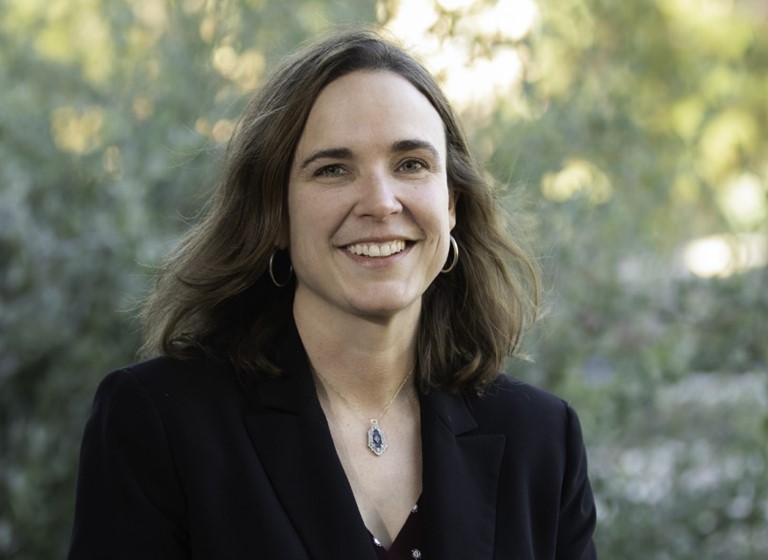We asked Dr. Ellison-Speight, Associate Director of UA Center for Middle Eastern Studies and lead on the UA Afghan Humanitarian Crisis Initiative about her ongoing work to assist Afghans affiliated with the University of Arizona.
How did you become involved with this initiative?
A lot of my activities around Afghanistan began informally as I moved to assist some of my colleagues from the Afghan Cultural Heritage Education Program (ACHEP), a National Park Service grant that received partial funding from the U.S. Department of State. The goal of ACHEP was to provide Afghans with the skills to protect their own cultural heritage and to become familiar with some of the more recent cultural heritage practices in the West. It involved both Afghan students, who participated in the program and Afghan professors that led the program. Unfortunately, however, since the Taliban takeover of Afghanistan in August of last year, having participated in this program has resulted in increased risk for the students and professors involved.
Initially, I, and the Center for Middle Eastern Studies behind me, was communicating with former ACHEP students and faculty-collecting necessary documents and filing P2 Applications for as many families as I could. These people are some of the nicest people I’ve ever met. ACHEP was an effective grant largely because of their involvement—the professors made this project work and the students were so eager to learn. They are great colleagues.
Afghanistan fell to the Taliban roughly 6 months ago—what has been going on since that time?
Although my engagement began informally, as humanitarian interest from the Tucson community peaked in late August of last year it became clear that the number of Afghans affiliated with the University of Arizona was too great to remain an informal endeavor. Faculty and staff from across campus were calling the Center for Middle Eastern Studies directly for information on how to assist Afghan colleagues and students. It was at this point that our efforts became more formalized.
Since late August, we have pooled University of Arizona resources and are working collaboratively with other universities on developing innovative ways to aid Afghans connected to the University of Arizona, whether they be in Afghanistan, in other countries, or in the US. Though the attention of the world has shifted, our commitment to these individuals and their families remains.
How would you describe the University of Arizona community’s response to the crisis in Afghanistan and what have you learned from this response?
I have been inspired by the response across the University to the crisis in Afghanistan. When I needed information on the ACHEP grant for P2 applications, staff who primarily work in digital files went to paper archives and dug for the required information. They got it to me in two hours. Similarly, when I reach out with a request to deans of colleges I’ve never worked with before, across the board everyone responds immediately with an exceeding willingness to be of aid.
As far as what I learned from this response, I’d say we can take the tools learned in navigating the Afghan crisis and hopefully lessen the learning curve for people looking to help Ukrainians now, or other populations in the future. I am an area studies expert, I am not an expert in Ukraine, nor am I an expert in immigration, but I can share what we’ve learned while navigating this system with our Afghan colleagues. Seemingly simple things—like knowing which attorneys are willing to do pro-bono work, knowing Tucson’s resettlement agencies, pulling from our multi-lingual CMES community to find translators—make a huge difference when you’re trying to connect a family in need of resources yesterday.
Speaking of Ukraine, how do you respond to fears that Russia’s War on Ukraine will pull attention and resources away from Afghanistan?
I think there are two points to be made here. First, thinking of the CBS Reporter, Charlie D’Agata who remarked that Ukraine “isn’t a place...like Iraq or Afghanistan, that has seen conflict raging for decades”, but a “relatively civilized, relatively European...city”, I feel it is critical to underline that everybody is deserving of humanitarian aid. This construct that certain areas have been in conflict for decades is a massive oversimplification and an unacceptable justification to ignore peoples’ suffering. That being said, I reject the idea of humanitarian goodwill as a non-renewable, finite resource. The people of Ukraine are deserving of every humanitarian effort. That does not infringe or take away from our ability to recognize and respond to the need in Afghanistan and other areas of the world.
As a national resource center, the Center for Middle Eastern Studies aims to raise awareness about the rich culture, language, and history of this very diverse region. My background as an area studies expert in this region positions me to be of particular assistance to my Afghan colleagues, but my experience in the past 6 months has shown that people are eager to lend a helping hand if you offer them an opportunity.
What are some ways our Tucson community can get involved?
Donate to or volunteer with local resettlement agencies and refugee organizations. Refugee resettlement in Tucson is done by three agencies: International Rescue Committee-Tucson, Catholic Community Services-Tucson, and Lutheran Social Services of the Southwest. Additionally, non-profit organizations like Iskashitaa Refugee Network help resettled refugees integrate into their new homes.


